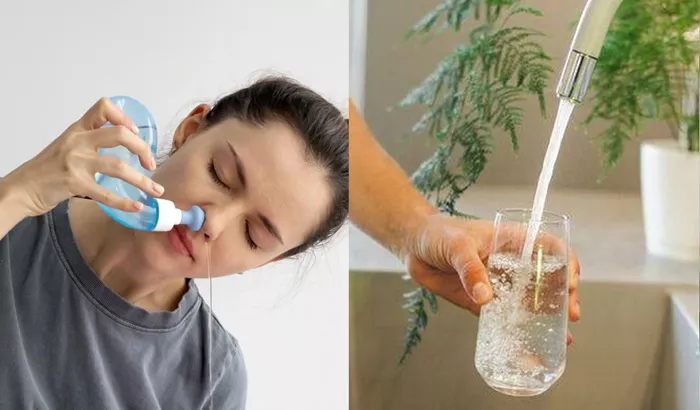A 71-year-old woman in Texas tragically died after contracting a rare and deadly brain infection caused by a brain-eating amoeba, Naegleria fowleri, from using unboiled tap water in a nasal irrigation device.
The U.S. Centers for Disease Control and Prevention (CDC) reported that the patient had filled her nasal rinse device with tap water from an RV faucet, which was not properly sterilized.
Within four days of use, she developed severe neurological symptoms including fever, headache, and confusion. Despite medical treatment, her condition worsened, leading to seizures and death eight days after symptoms appeared.
Laboratory testing confirmed the presence of Naegleria fowleri, which causes primary amebic meningoencephalitis (PAM), a rare but nearly always fatal brain infection.
What Is Naegleria fowleri?
Naegleria fowleri is a microscopic amoeba found in warm freshwater and soil. It can enter the body through the nose during activities like swimming or nasal rinsing with contaminated water. Once inside, it travels to the brain, causing inflammation and destruction of brain tissue.
Symptoms to Watch For
Initial symptoms of PAM typically appear 1 to 12 days after exposure and include:
- Headache
- Fever
- Nausea and vomiting
- As the disease progresses, symptoms can worsen to:
- Stiff neck
- Confusion and disorientation
- Hallucinations
- Seizures
- Coma
Due to the rapid progression and high fatality rate (over 97%), early recognition and immediate medical attention are critical.
How to Protect Yourself
The CDC emphasizes the importance of safe nasal irrigation practices and water quality:
Always use distilled, sterile, or boiled (then cooled) water for nasal rinsing devices.
Avoid using tap water directly, especially from sources like RV faucets or untreated water systems.
Be cautious when swimming in warm freshwater lakes, ponds, or rivers, particularly in summer months. Avoid submerging your head or stirring up sediment.
Seek medical help promptly if you develop symptoms after freshwater exposure.
Treatment Challenges
Treatment for PAM involves a combination of antifungal and antibiotic drugs, including newer medications like miltefosine. However, survival rates remain extremely low, and the effectiveness of treatments is still uncertain due to the rarity of cases.
Final Health Advice
While infection by Naegleria fowleri is rare, the consequences are devastating. Preventive measures are simple but vital to avoid exposure:
Use safe water sources for nasal irrigation.
Practice caution with freshwater activities during hot weather.
Monitor for early symptoms and get urgent medical care if they develop.


